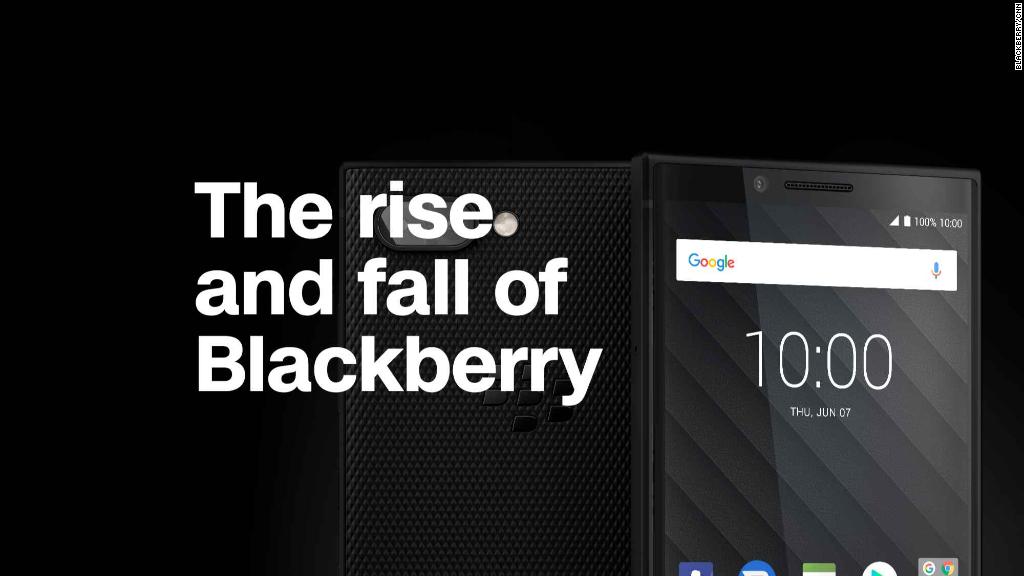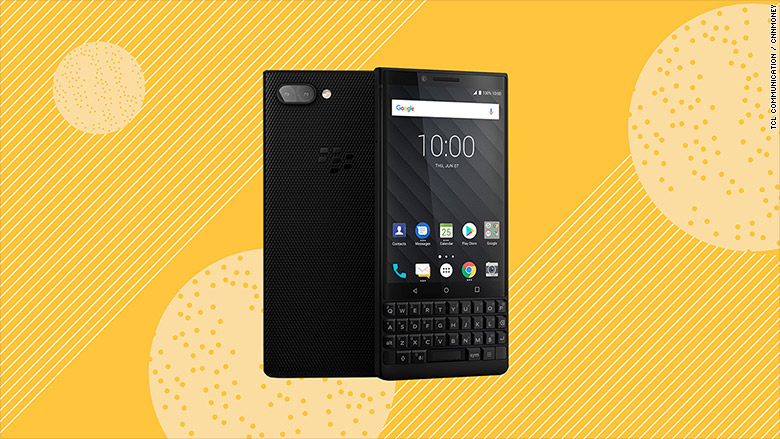
For many former users, BlackBerry phones invoke nostalgia for physical keyboards and its once popular BBM messaging service.
As iPhones, Samsung Galaxies, and other sleek touchscreen smartphones became ubiquitous, BlackBerry couldn't keep up. In 2016, it announced it would stop making its own devices.
But that doesn't mean BlackBerries don't exist anymore. Key2, the latest BlackBerry mobile device, was unveiled at an event in New York City on Thursday.
Although the Key2 has the look and feel of a traditional BlackBerry phone, it has modern twists, especially when it comes to security. It features a browser that doesn't track your web activity, virus scanning and secret folders for private photos and documents.
Of course, it still has a physical keyboard, but you can do more with it, like scroll up and down on a web page by swiping your finger. The device has up to two days of battery life, a dual-lens camera on the back for the first time, and popular camera features like Portrait Mode. It runs the latest Android operating system, 8.1 Oreo.

Related: BlackBerry's software bet continues to pay off
The Key2 builds on last year's KeyOne, which was the first BlackBerry phone released under a licensing deal with Chinese manufacturer TCL Communication. In 2016, BlackBerry announced the partnership with TCL, which now makes and sells BlackBerry-branded mobile devices. For its part, BlackBerry provides the software and services.
"We're committed to the keyboard category," Alain Lejeune, president of BlackBerry Mobile and senior VP at TCL Communication, told CNNMoney ahead of Thursday's event. "We're keeping that very strong BlackBerry DNA, but adding more to that with new features addressing modern needs."
The partnership with TCL is supposed to be a revival for the storied brand, which once made the phone of choice for Wall Street bankers, politicians and celebrities like Kim Kardashian.
But the Key2 is not supposed to have mass appeal. It's aimed at a business-oriented audience who wants a communication device first, rather than a phone for entertainment and video streaming.
"BlackBerry phones at this point are a relic and a niche product," said Marcelo Ballvé, VP of research firm CB Insights' intelligence unit. "They appeal mainly to a small corporate audience who feel attached to the format of a physical keyboard, and tend to respect the brand's aura as a white-collar power tool with good security features."
Its built-in Dtek app shows your security settings at a glance, so you can quickly view and manage app permissions, such as which ones can access your location, camera or microphone. You can also scan your device for potential vulnerabilities and security optimizations.
Meanwhile, the Locker feature lets you create private folders for sensitive documents and photos, which won't be uploaded to the cloud. You can also access Firefox Focus, a private browser that won't track your internet history. Locker can only be accessed with your fingerprint or passcode.
The phone starts at $649 and will begin shipping globally this month.
Related: BlackBerry's turnaround is complete
David McQueen, research director at ABI Research, said the smartphone market has moved on "immeasurably" since the brand's heyday.
"Many BlackBerry users have since moved on to other platforms and devices that provide a much richer smartphone experience while also offering 'soft' QWERTY keyboards and robust mobile security solutions," he said.
McQueen said it will be a challenge to convince users to sacrifice some device functionality and performance for a hard keyboard. BlackBerry also has to compete with market leaders Apple and Samsung, in addition to a slew of Android vendors in the mid and entry-level smarphone market.
TCL's Lejeune said BlackBerry has a "very strong fan community" that has been reenergized. He noted the KeyOne received "really strong" reception in the market.
But it's unclear how successful the KeyOne really phone was. TLC does not release sales figures, but the company said it sells BlackBerries in over 50 countries.
BlackBerry also lacks a standout, marquee feature -- such as an excellent camera -- that buyers can point to as a significant benefit over their current device, according to Chris Silva, research VP of enterprise mobile strategy at Gartner.
"It is unlikely that the upcoming device will capture the attention of a majority of users," he said.

